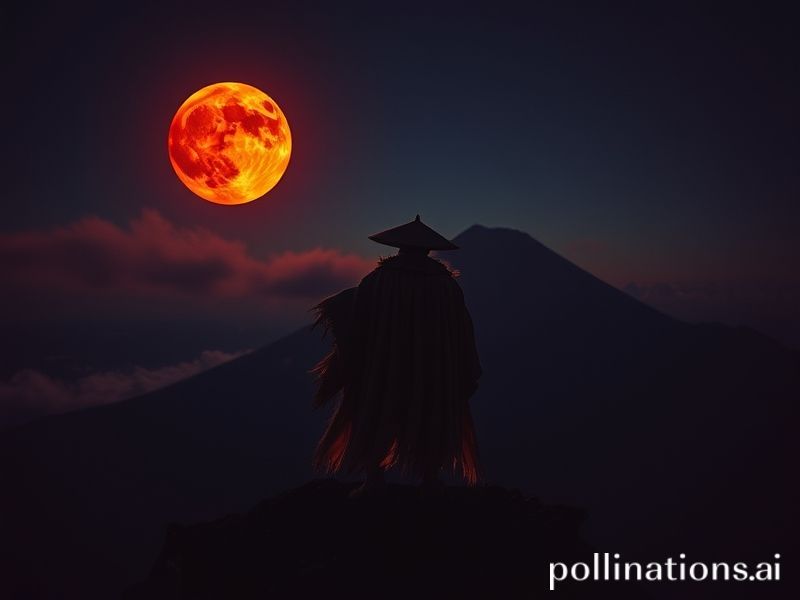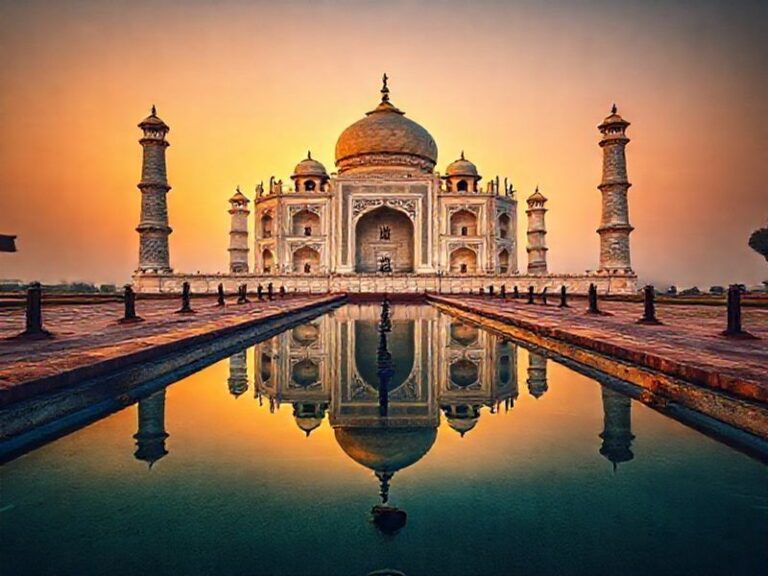Ghost of Yotei: How a Samurai Game Became the Planet’s Newest Soft-Power Weapon
Ghost of Yotei: A Spectral Sequel That Haunts the Planet While Pretending to Save It
By the Foreign Desk, somewhere between a bullet train and a bar tab
TOKYO—In the year when glaciers file for early retirement and the S&P 500 trades on thoughts and prayers, Sucker Punch Productions has gallantly decided what the world really needs: another open-world samurai simulator. Ghost of Yotei, announced last week, is billed as a “spiritual successor” to 2020’s Ghost of Tsushima, a phrase that sounds suspiciously like corporate séance-speak for “please buy it twice.” The game drops us—yet again—into feudal Japan, this time on the slopes of Mount Yotei, Hokkaido’s Fuji-shaped volcano, circa 1603. Because nothing says 2024 like escaping into the Edo period to forget that the actual Edo period may soon be the only habitable climate left.
Internationally, the reveal has been greeted with a level of hysteria usually reserved for celebrity divorces or central-bank press conferences. Western media outlets ran headlines about “diversity in representation” because the new protagonist, Atsu, is a female rōnin. Scandinavian outlets praised the ecological backdrop—snow, wolves, the occasional existential crisis—while conveniently ignoring the carbon footprint of 50 million PS5s humming in unison. Meanwhile, Japanese gamers on 5ch shrugged: “At least it’s not another dating sim with our tax money.” Diplomacy, it seems, is now conducted in comment sections.
From an economic standpoint, Ghost of Yotei is less a game and more a sovereign-wealth fund in a steelbook case. Sony’s stock spiked 3.4% on the teaser alone, which in yen translates to roughly the GDP of Tonga. Analysts in London termed it “soft-power leverage against Disney,” apparently forgetting that Disney already owns the souls of most analysts in London. In Seoul, venture-capital drones are busy cloning the aesthetic for mobile gacha titles, proving once again that intellectual property is merely a polite fiction, like calorie counts on airline meals.
Geopolitically, the timing is exquisite. Washington’s newest export restrictions on semiconductor tech to China come paired with trailers of katana-wielding heroines slicing through Mongol invaders—subtle as a drone strike. Beijing’s state-run Global Times responded by accusing the game of “feudal romanticism,” which is rich coming from a paper that still prints Mao’s Little Red emoji. The irony, of course, is that both superpowers are essentially arguing over who gets to sell the prettier illusion of a simpler, stabby past while their present melts into seawater.
But let us not overlook the meta-commentary baked into Yotei’s very premise: a lone warrior roaming a lawless frontier, protecting villages that will be obliterated by lava, politics, or both. Swap snow for sand and katana for Kalashnikov and you’ve got every failed state from Mali to Missouri. The game’s creative director says the narrative explores “what it means to fight for a home that can never truly be yours,” a line that resonates with 110 million forcibly displaced people who unfortunately can’t respawn. Somewhere in a Brussels conference room, an EU functionary is already drafting a grant proposal titled “Ghost of Yotei as Soft-Power Tool for Migrant Integration,” proving satire is officially redundant.
Culturally, the announcement has sparked the usual purity Olympics. Online forums from Buenos Aires to Bangalore argue whether the armor is historically accurate or whether the foxes look too CGI. Nobody, oddly, is debating why the foxes speak fluent English subtitles—a miracle of linguistic colonialism that would make Lord Macaulay blush. Meanwhile, Netflix has green-lit an eight-episode prequel starring a British-Japanese pop star who once tweeted about sushi, because representation now comes with merchandising rights.
In the end, Ghost of Yotei is less a ghost than a mirror: reflecting our collective yearning for a past we never lived, a heroism we rarely practice, and a planet we’re actively barbecuing. It will sell 15 million copies, spawn 200 think-pieces, and be pirated in every language that still has electricity. And when the real Mount Yotei finally erupts—because, spoiler, it’s an active volcano—somebody will live-tweet it with the game’s photo mode hashtag. Humanity, ever the multitasker, will watch the lava flow while unlocking a platinum trophy for cultural appreciation. The credits will roll, the servers will shut, and the only remaining ghosts will be us.







